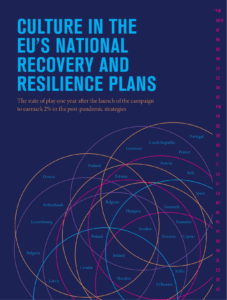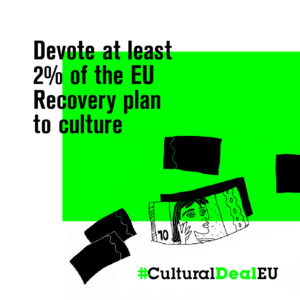 The study was planned in the annual work program 2020 for the implementation of the program “Creative Europe” as a core element of the New European Theatre Initiative for sectoral support of the theater and performing arts sector. The results are now available. The intention is to improve support for the theater sector at the EU level. Based on quantitative and qualitative data collection, the study undertakes a first comprehensive mapping of the socio-economic profile and impact of the theater sector in the EU. It highlights the diversity of the sector and the differences between actors in terms of their business models, funding/ownership structures and program systems. In addition to collecting socio-economic data, the study also addresses the initial impact of the COVID-19 pandemic and provides a detailed analysis of the support systems available to the theater sector in the countries of the European Union. The study also addresses aspects such as training of theater professionals, gender balance, sustainability, and accessibility within the sector.
The study was planned in the annual work program 2020 for the implementation of the program “Creative Europe” as a core element of the New European Theatre Initiative for sectoral support of the theater and performing arts sector. The results are now available. The intention is to improve support for the theater sector at the EU level. Based on quantitative and qualitative data collection, the study undertakes a first comprehensive mapping of the socio-economic profile and impact of the theater sector in the EU. It highlights the diversity of the sector and the differences between actors in terms of their business models, funding/ownership structures and program systems. In addition to collecting socio-economic data, the study also addresses the initial impact of the COVID-19 pandemic and provides a detailed analysis of the support systems available to the theater sector in the countries of the European Union. The study also addresses aspects such as training of theater professionals, gender balance, sustainability, and accessibility within the sector.
One of the core recommendations of the study is the establishment of the European Theatre Forum, thereby fostering regular and structured dialogue between member states, European institutions, theater and performing arts associations, and civil society. The first European Theatre Forum 2020 in Dresden was co-organized by the ITI and resulted in the Dresden Declaration. The European Theatre Forum and the Dresden Declaration flank the study as key elements of the New European Theatre Initiative.
Study (99 pages)
Executive summary (10 pages)
 On 23 September 2022, the 16th General Assembly of IAA Europe was held in Helsinki. It was hosted by the Artists’ Association of Finland and by a-n The Artists Information Company (UK).
On 23 September 2022, the 16th General Assembly of IAA Europe was held in Helsinki. It was hosted by the Artists’ Association of Finland and by a-n The Artists Information Company (UK).
 The study was planned in the annual work program 2020 for the implementation of the program “Creative Europe” as a core element of the
The study was planned in the annual work program 2020 for the implementation of the program “Creative Europe” as a core element of the  14 countries out of 261 – 53% of the total – have included culture in their
14 countries out of 261 – 53% of the total – have included culture in their The #CulturalDealEU campaign calls heads of states and governments of the EU Member States to devote at least 2% of their National Resilience and Recovery Plans (NRRPs) to culture and show due evidence for cultural and European relevance.
The #CulturalDealEU campaign calls heads of states and governments of the EU Member States to devote at least 2% of their National Resilience and Recovery Plans (NRRPs) to culture and show due evidence for cultural and European relevance.  More than 100 organizations from the EU and the US have signed a letter ahead of the EU-US Summit in June 2021 to call for a greater focus on EU-US cultural relations and to reduce the obstacles to visas and work. Matters of particular importance also in recovering from the Corona crisis.
More than 100 organizations from the EU and the US have signed a letter ahead of the EU-US Summit in June 2021 to call for a greater focus on EU-US cultural relations and to reduce the obstacles to visas and work. Matters of particular importance also in recovering from the Corona crisis.